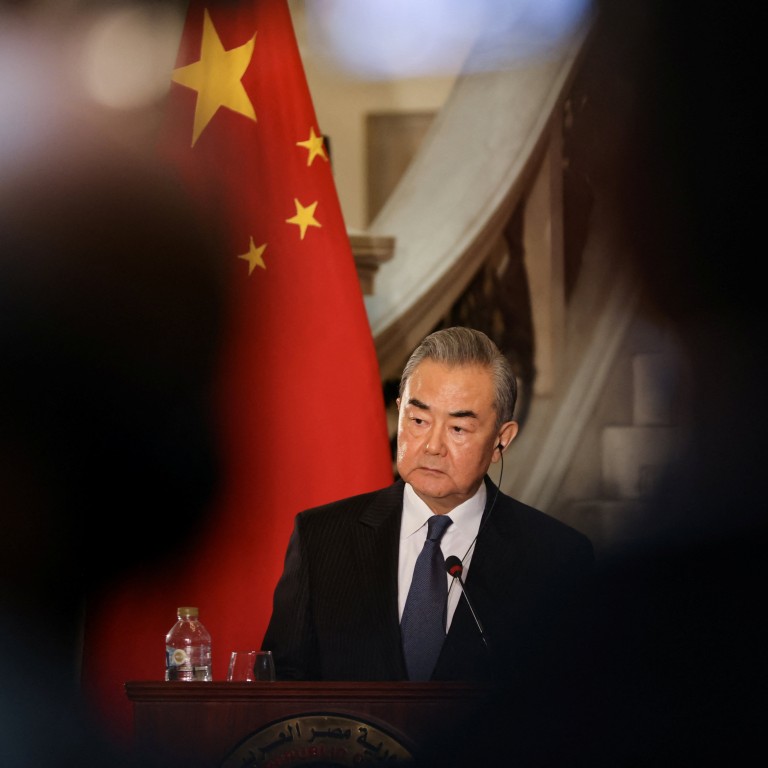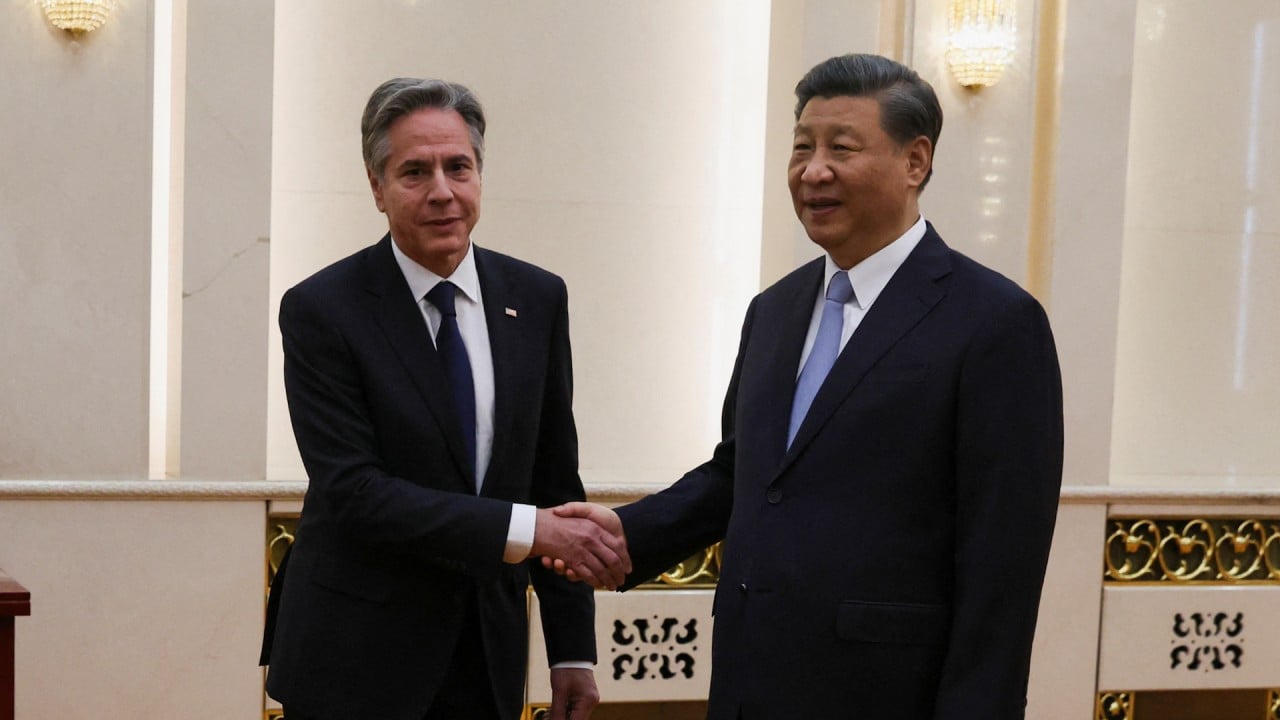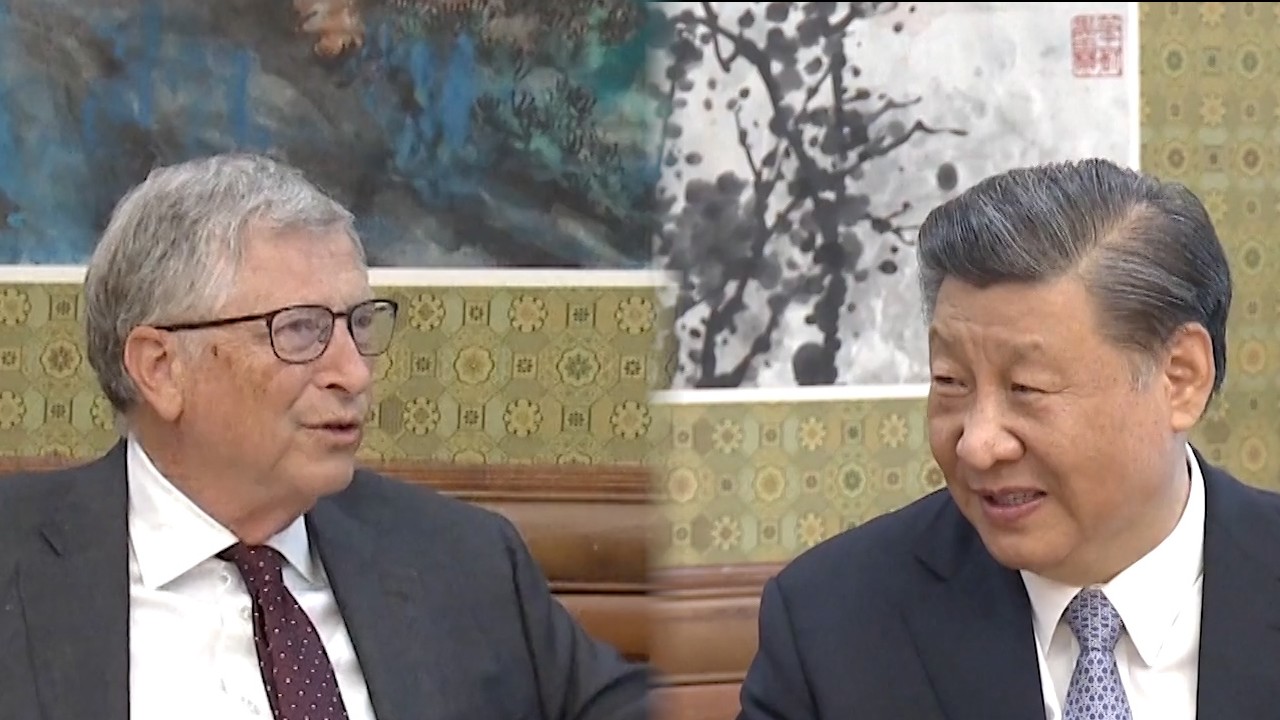
China holds moral high ground as global leader, top diplomat says in push for alternative world order
- Foreign Minister Wang Yi says Beijing has led the way in development and holds moral appeal under Xi Jinping
- Centralisation of power in foreign relations leaves envoys with little room move, observer says
While the country had weathered “many storms and waves” and overcome “various difficulties and challenges” since President Xi Jinping took power over a decade ago, Beijing had “effectively led the direction of world development” and become an international power of “moral appeal”, Wang said.
But observers say the continued centralisation of power in foreign relations could lead to more enemies and put off potential partners.
Without naming Washington, he sought to present China’s diplomacy as a new path of international relations, an alternative to the existing US-led world order marked by Cold War-style division, bullying and bloc confrontation.
“It is necessary to advocate that all countries adopt a new path of state-to-state relations through dialogue rather than confrontation and partnership rather than alliance, bridge differences through dialogue and resolve disputes through cooperation,” Wang said.
According to Wang, most countries believe in the trend of a multipolar world and refuse to go back to “the old path of camp confrontation and zero-sum games, let alone repeat the mistakes of war and conflict”.
“We advocate that a multipolar world should be based on equality, which means that all countries, big and small, are equal, oppose hegemonism and power politics, oppose the monopoly of international affairs by a few countries,” he said.
“Every country or group of countries should find its own place in the global multipolar system, breaking the traditional narrative that multipolarity means only a few big countries.”
Wang, Xi’s top foreign policy aide, also pledged allegiance to China’s strongman leader, praising Xi as “the top policymaker and chief architect of foreign affairs”.
But he was silent on the fate of disgraced former foreign minister Qin Gang and former defence minister Li Shangfu, whose removal last year stoked intense media speculation.
He also took a jab at the rising protectionism in the West and pledged China would adhere to openness and inclusiveness both at home and abroad, push for win-win cooperation and resist attempts to reverse economic globalisation.
“In the context of great changes in the world, no country can survive alone. ‘Winner takes all’ is even more idiotic. We must adhere to the right path of promoting unity and cooperation,” Wang said.
While China’s major-power diplomacy would enter a new and “more promising” stage, “we cannot be satisfied with our past achievements and not think about making progress, nor can we be timid because of the turbulent external environment”, he said in the article.
Dismissing growing criticism and unprecedented pushback against China’s increasingly authoritarian system, Wang insisted the country would become more “self-confident and self-reliant” in its development “path, theory, system, and culture”.
China would face “more severe international situations and complex external environments”, according to Wang, who called for a “fearless”, “tenacious” fighting spirit when dealing with difficulties and challenges.
“Only by having the courage to fight and being good at fighting can we overcome all kinds of difficulties and obstacles,” he said.
In a speech at a think-tank event in Beijing last week, Wang outlined China’s main diplomatic tasks for the new year amid signs of China’s thawing ties with the US, Europe and other major Western powers.
He listed “exploring a correct way” for Beijing and Washington to get along with each other and deepening “strategic mutual trust and mutually beneficial cooperation” with Moscow in the midst of Russia’s protracted war against Ukraine as Beijing’s top priorities.
Beijing would also seek to stabilise ties with Europe and its Asian neighbours amid tensions in the South China Sea and around Taiwan.
China will continue to ‘explore the correct way to get along’ with US: Wang Yi
But experts have expressed concerns about the country’s attempts to further tighten control of the opaque and highly centralised decision-making process.
Zhiqun Zhu, an international relations professor from Bucknell University in Pennsylvania, said that while the effort would further elevate Xi’s status to the level of late leader Mao Zedong, it would leave little room for professional diplomats to manoeuvre or address worsening external challenges.
Suisheng Zhao, director of the Centre for China-US Cooperation at the University of Denver’s Josef Korbel School of International Studies, also said Xi’s power concentration had serious implications for China’s foreign policy.
While forging an “anti-hegemonic” coalition with Russia and Iran and deploying economic coercion against its perceived opponents, Xi’s major power foreign policy “risks overreach, making enemies on all fronts, alienating potentially valuable would-be partners and unifying rivals”, Zhao said.
In an article published last month on the website of the US Institute of Peace, Zhao said Xi’s “unchecked power” and concentrated control over foreign policymaking “has minimised the opportunities for his wrong decisions to be corrected”.
Worse still, “the politicisation of the foreign policy bureaucracy has changed the incentive structure of Chinese diplomats from professionals who make friends and turn enemies into friends to political loyalists and Wolf Warriors who win diplomatic battles with a ‘fighting spirit’ to defend the core national interests”, he said.



